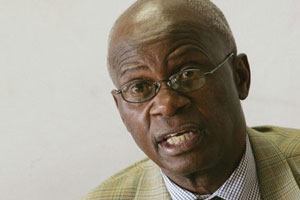
Finance minister Patrick Chinamasa’s mid-term fiscal policy review and its associated measures do not inspire confidence for economic momentum required for growth, analysts and stakeholders have said.
BY OUR STAFF
Chinamasa proposed a raft of measures to raise additional revenue in the wake of declining revenue from taxes and soaring expenditure.
The minister increased excise duty on diesel and petrol to US$0,30 and US$0,35 cents per litre from US$0,25 cents and US$0,30 cents respectively with effect from September 12. He proposed to levy excise duty of 5% on airtime for voice and data, with effect from tomorrow (Monday), and a 25% customs duty on mobile handsets effective October.
A research analyst said revenue measures being put in place highlighted the limited options government was facing in generating revenue.
“Such measures are short term as they do not address the key challenges in the economy. They are also going to strain the general populace further stifling aggregate demand,” he said.
Chinamasa increased duty on imported cars saying vehicle imports accounted for 10% of the import bill in the period January to June.
This would see passenger motor vehicles of engine capacity below 1 500cc — the favourite among the hard pressed Zimbabweans — attracting a duty of 40% from 25% with effect from November 1. The grey imports are more affordable for locals compared to locally assembled cars in the absence of cheap financing from banks.
- Chamisa under fire over US$120K donation
- Mavhunga puts DeMbare into Chibuku quarterfinals
- Pension funds bet on Cabora Bassa oilfields
- Councils defy govt fire tender directive
Keep Reading
Chinamasa said the local assembly of motor vehicles benefitted downstream industries, such as paint, carpet material, glasses’, tyres’ and batteries’ manufacturers, among others.
“These industries have, however, either closed or are operating at very low capacity due to low demand for goods and services from local motor vehicle assembly plants,” he said, adding that the measure takes into account the need to protect consumers from unfair pricing and substandard products.
But a survey by Standardbusiness showed that the local car assemblers have no capacity to meet the demand. In addition, their prices are beyond the reach of many in a harsh economic environment. Willowvale Mazda Motor Industries stopped assembling cars two years ago.
“You can’t say you are protecting industry because we don’t have industry to talk of. The economy is dead,” former Finance minister Tendai Biti said.
He said Zimbabweans were on the rocks with company closures yet Chinamasa was imposing a tax burden to improve the fiscal revenue.
“It is a measure that seeks to draw water from a stone. Why tax food stuffs, vehicles, handsets and airtime which is the only form of communication our people have? It is the worst financial statement I can remember,” Biti said.
The past president for the Confederation of Zimbabwe Industries Kumbirayi Katsande said the minister was looking for revenue raising measures in the wake of shrinking consumer demand and tax base.
“I think this is a desperate situation. Government is not anywhere near what the existing recurrent expenditures are. We need to look at ways to reduce our costs as well; that is critical,” he said.
Katsande said Chinamasa needed to be supported in his efforts to get foreign direct investment.
Economist John Robertson said Chinamasa was wrong about the economy growing as it will only shrink further.
“The measures introduced will reduce the amount of money people can spend on other things. Shops will record lower profits and there will be fewer tax sources from other sectors, there is no net gain for government,” he said.
He said that the ease of doing business in Zimbabwe is one of the lowest in the world and the new measures only worsened the situation.
“Government still has to build factories and the duty increases targeting food and household items are a start in the wrong place. Most active farmers in Zimbabwe are growing tobacco and not food,” said Robertson.
Analyst Eric Bloch said government still had a long way to go, adding that the increases in duty were inflationary.
“The increase in fuel for example will increase the cost of transportation of goods. This will affect retail prices and impact on the population negatively [in terms of cost of living],” he said.
“Nothing was said about stimulating investment, reinstatement of export incentives or steps to inspire investor confidence.”
A research analyst said the mid-term review highlighted the glaring fact that growth in the economy was slowing down as shown by the downward revision of growth projections.
“With soft commodity prices and a struggling manufacturing sector and lower funding, even in the agriculture sector, we do not see the 3,1% target being achievable,” he said.











